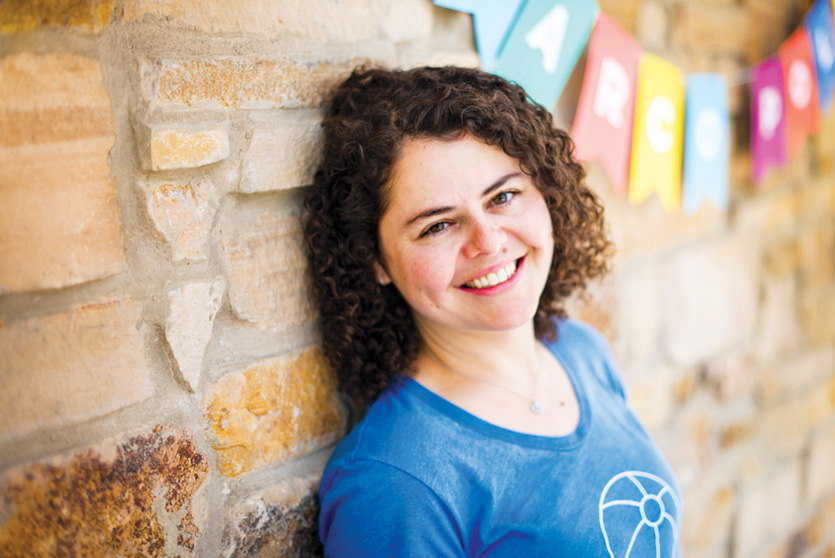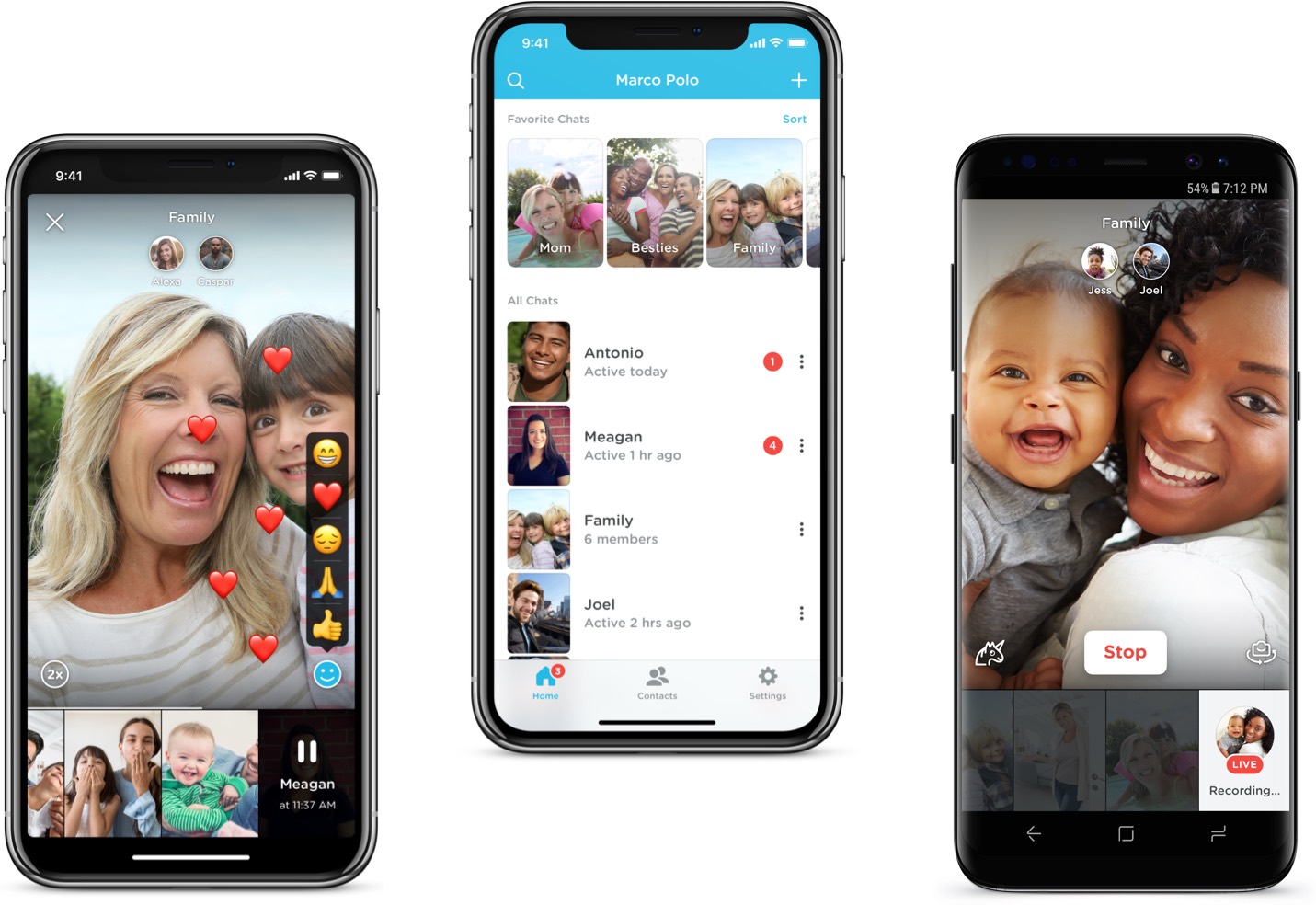Rediscovering Connection
Vlada Bortnik brings closeness and authenticity to digital communication through her company, Marco Polo.
As a student roaming the Northwestern campus with a double major in computer engineering and art, Vlada Bortnik (’01) started to believe in the magic of technology.
For a research project, she helped Northwestern Professor Todd Kuiken develop 3D-printed prosthetics that looked more realistic and cost less to produce than competitors’ products, two factors known to increase acceptance and usage of such devices.
“It was inspiring to see how someone’s idea could become reality,” she says.

Now the CEO and cofounder of video messaging app Marco Polo, Bortnik is working to make some magic of her own—to restore meaningful connection to digital interactions, a goal that carries heightened importance during the COVID-19 pandemic.
“It’s clear how important authentic communication is,” Bortnik says. “We’ve seen many tools help us connect in more ways than ever, but the fabric of connections has loosened in our personal and professional lives.”
Starting at Microsoft
After interning at Microsoft, Bortnik joined the software giant as a program manager following graduation. She helped develop and grow the Microsoft Office, Messenger, and Hotmail systems.
“I got hooked on developing technology that made a difference in people’s lives,” Bortnik says.
At Microsoft she also met her husband, Michal, who worked on the company’s Xbox video game platform. After collaborating on Artreach, a successful nonprofit arts organization Vlada launched, the two realized they worked well together. They moved to Palo Alto, California, in 2006, where Michal joined Stanford University’s MBA program, and Vlada took business classes alongside him. When thinking about the future of their careers, the pair knew they wanted to start their own company, one that would leave a lasting impact on the world and set an example.
“We knew our kids would be watching us and learning as we made these big decisions. We wanted to model for them the kind of life we hoped they would have,” she says.
Discovering Marco Polo
As the mother of two young children, staying in touch with relatives became paramount. But Bortnik struggled to maintain meaningful relationships with her family spread across the United States and Europe. Video calls required too much planning during busy weekends. Social media and texting lacked a sense of personal connection. Missed impromptu calls to and from relatives were frustrating.
“What was supposed to be meaningful had the opposite effect. It felt like work,” she says.
Around the same time in 2011, the couple began exploring possible directions for their future company, determined for it to be purpose driven and to ultimately positively impact one billion people. In search of learning what makes people happy, they pored over published research, watched TED talks, and conducted interviews. The answer: meaningful connection.
“Before we knew our company’s purpose, we knew it would focus on fostering a sense of closeness among people,” Bortnik says.
 In 2012, Vlada and Michal launched Joya Communications and began developing what would become Marco Polo, an app that combines the convenience of text messaging with the interpersonal benefits—like understanding tone and context—of video chats. With this more practical alternative to existing platforms, users can start conversations with close friends individually or in groups, and recipients can respond when it’s convenient for them, eliminating games of phone tag and rigid live video chat schedules.
In 2012, Vlada and Michal launched Joya Communications and began developing what would become Marco Polo, an app that combines the convenience of text messaging with the interpersonal benefits—like understanding tone and context—of video chats. With this more practical alternative to existing platforms, users can start conversations with close friends individually or in groups, and recipients can respond when it’s convenient for them, eliminating games of phone tag and rigid live video chat schedules.
Marco Polo is also notable for what it doesn’t do: the company has promised never to sell any collected data, and the interface is devoid of ads and gamification metrics such as “likes.” “Our decisions are guided by our users’ well-being,” she says.

The approach is paying off. Since its formal launch in 2016, more than four billion messages, or “Polos,” have been sent on the app, which also offers a subscription-based plan with features like bookmarks, reminders, and message forwarding.
Promoting connection during a pandemic
As the pandemic spurred an urgent need to move from in-person to digital communication, Bortnik says the importance of meaningful connection has deepened.
“Loneliness is a real concern during a time like this, and people value meaningful connection with a few close friends,” she says.
The company has benefited. Marco Polo was the 21st most downloaded app on the Apple App Store in March 2020. Still, Bortnik remains focused on the company’s unflinching and almost magical goal, to facilitate authentic communication.
“Technology can do so much good,” she says. “I want to create a world where people care deeply about staying connected and in a way that feels like time well spent. Many people are discovering that feeling, and it’s wonderful.”
